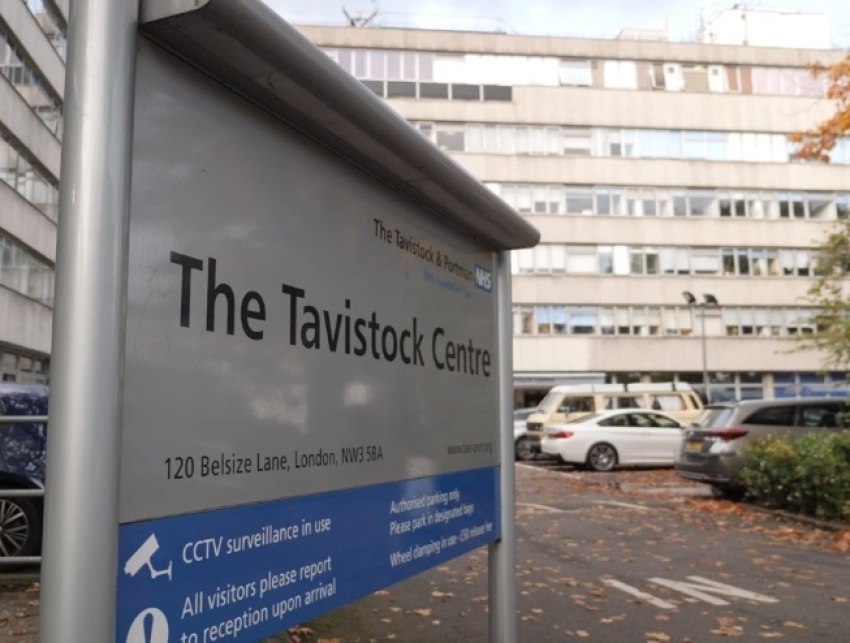UK to shutter Tavistock gender clinic for children following formal review
NHS to launch network of local clinics amid a doubling in demand

The United Kingdom National Health Service is closing the gender identity clinic at the Tavistock and Portman Trust, the London-based facility whose practices have faced considerable scrutiny in recent years.
The clinic is being shut down by next spring in light of recommendations from an independent review led by Dr. Hillary Cass, which was set in motion in the fall of 2020 and released earlier this month.
"The aim is to close the Tavistock clinic by spring 2023, moving to the new provider model through specialist children's hospitals," an NHS source told The Guardian Thursday.
"The children being seen by the Tavistock (and those on waiting lists) will be transferred to a new provider over the course of that time."
Cass stated in a July 19 report that there was a need to move away from the sole provider model and develop services regionally to meet the needs of patients. The report was also critical of using experimental puberty-blocking drugs to treat gender dysphoria.
"The rationale for use of puberty blockers at Tanner Stage 2 of development was based on data that demonstrated that children, particularly birth-registered boys who had early gender incongruence, were unlikely to desist once they reached early puberty; this rationale does not necessarily apply to later-presenting young people, including the predominant referral group of birth-registered girls," Cass wrote.
"We do not fully understand the role of adolescent sex hormones in driving the development of both sexuality and gender identity through the early teen years, so by extension we cannot be sure about the impact of stopping these hormone surges on psychosexual and gender maturation. We therefore have no way of knowing whether, rather than buying time to make a decision, puberty blockers may disrupt that decision-making process."
In a statement Thursday, the Tavistock and Portman NHS Foundation Trust stated that there were over 3,500 referrals to its Gender Identity Development Service in 2021.
"This is another doubling in demand for support with gender identity," the statement reads. "This level of need cannot and should not be met by a single highly specialist national service. It is crucial that gender-diverse children and young people can access care and support in a timely fashion within a joined-up system."
According to NHS England, there have been over 5,000 referrals for gender identity services between 2021 and 2022, compared to just 250 referrals in 2011-2012.
The number of referrals to the nation's Gender Identity Development Service (GIDS) has particularly skyrocketed among girls, many of whom have come to believe they are the opposite sex through internet-fueled peer contagion and that being trans-identified was a maladaptive coping mechanism to other mental health distress.
"Staff [at regional centers] should maintain a broad clinical perspective in order to embed the care of children and young people with gender uncertainty within a broader child and adolescent health context," Cass wrote.
In the United States, a similar trend has been detected, most notably in 2018, when public health researcher Lisa Littman published an article in PloS One revealing, among other things, how many girls were coming out as transgender in clusters of friend groups and after many had spent an inordinate amount of time online. This phenomenon has been called "rapid onset gender dysphoria" and marked a substantial shift in the diagnostic history of gender dysphoria diagnoses, which until recent years almost exclusively afflicted young boys.
The Cass review also detailed that the evidence base for using drugs to arrest natural puberty in gender dysphoric children is poor and highlighted their impact on brain development, noting that "brain maturation may be temporarily or permanently disrupted by puberty blockers, which could have significant impact on the ability to make complex risk-laden decisions, as well as possible longer-term neuropsychological consequences."
In February 2021, research published in PLOS One revealed that the use of blockers notably stunted bone growth in children who were given puberty blockers. The study followed a cohort of 44 youth who had undergone the experimental treatment in the U.K.'s NHS gender clinic.
"In both cases (height and bone strength) there was some growth but less than would be expected during those years without hormonal suppression," the research found, according to NHS. The research was published nine years after the study began. Of the 44 children that the study tracked, 43 went on to take cross-sex hormones.
The Tavistock clinic was also the subject of considerable scrutiny in 2020 when Keira Bell, a young woman in her 20s, alleged in a judicial review that she was incapable of understanding the risks of puberty blockers when she was treated at the clinic as a teenager with mental health issues. Bell went on to take opposite sex hormones and underwent a cosmetic double mastectomy only to later regret those decisions and detransition.
The U.K. High Court of Justice of Justice initially ruled in Bell's favor in late 2020 but then overturned the decision several months later.
Send news tips to: brandon.showalter@christianpost.com Listen to Brandon Showalter's Life in the Kingdom podcast at The Christian Post and edifi app Follow Brandon Showalter on Facebook: BrandonMarkShowalter Follow on Twitter: @BrandonMShow



























